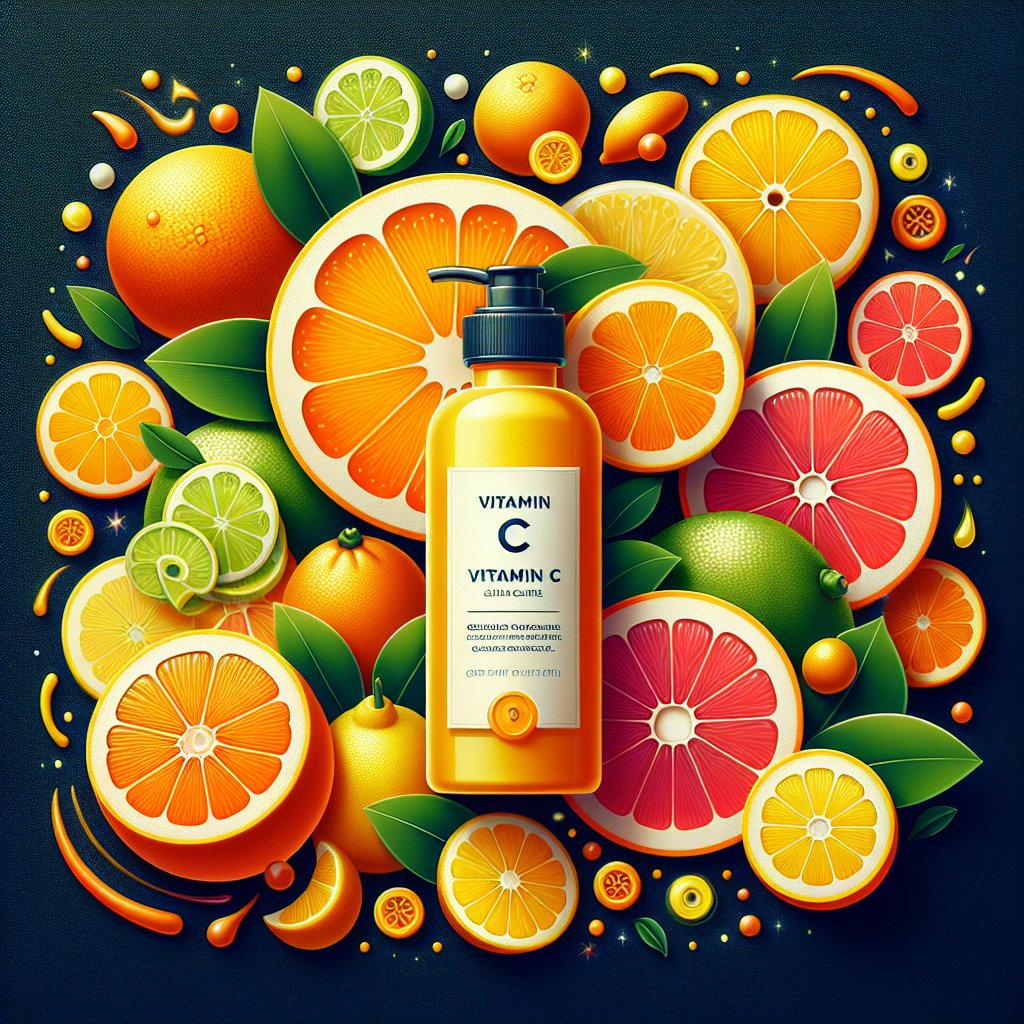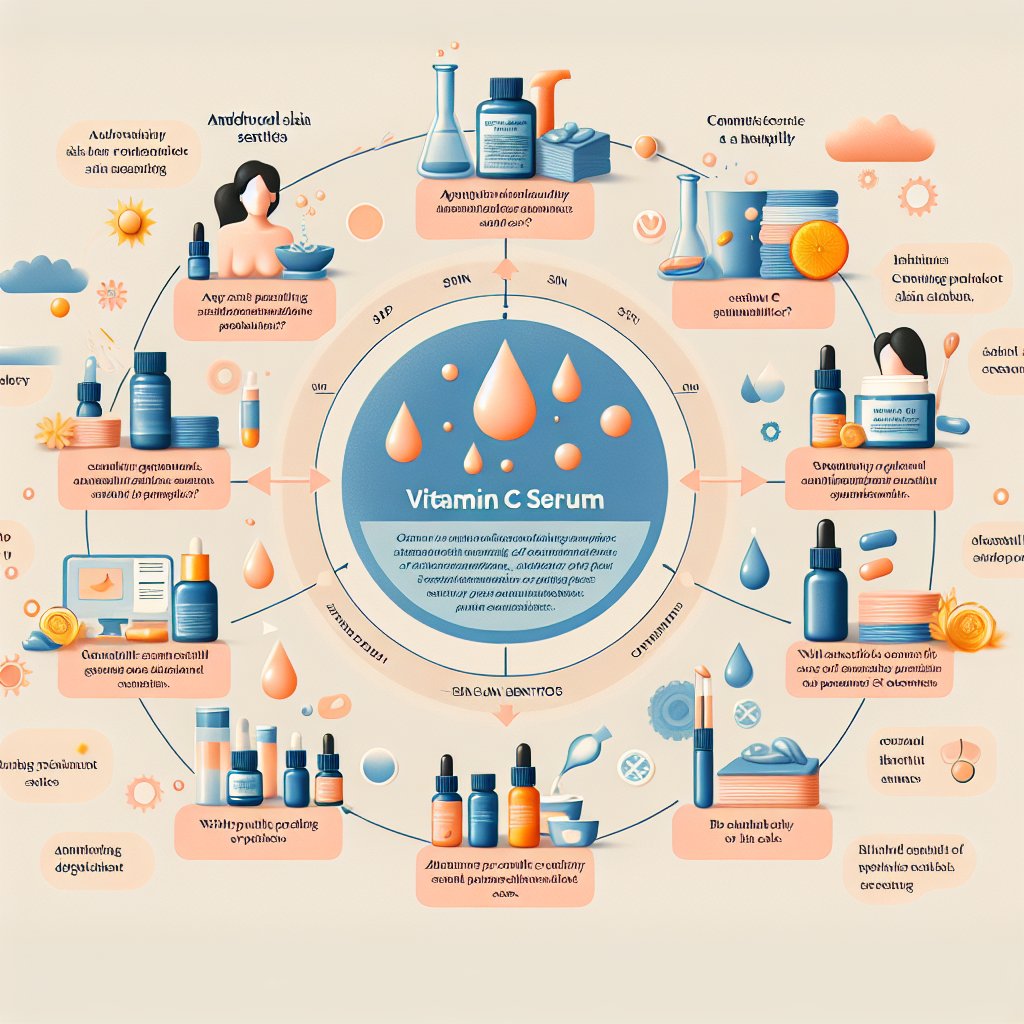Revolutionary Discovery: Does Vitamin C Help Acne? Unveiling the Ultimate Skincare Secret!
The Importance of Skincare and the Common Issue of Acne
Hey there, beautiful souls! Let’s talk about skincare and the common, pesky issue that plagues many of us: acne. Taking care of our skin is not only about enhancing our outer beauty, but it’s also a crucial part of self-care and overall health. Acne, a skin condition that affects people of all ages, can sometimes feel like an unwelcome visitor that just won’t leave. It doesn’t matter if you’re in your teens or well into adulthood, acne can be a real confidence crusher.
Skincare is vital because our skin is the largest organ in our body, and it plays a pivotal role in protecting us from environmental factors, regulating body temperature, and serving as a barrier against infections. Plus, let’s not forget the confidence boost we get when our skin looks and feels amazing!
Acne, on the other hand, can be a real downer. Whether it’s the occasional hormonal breakout or more persistent acne, it’s frustrating and sometimes downright painful. We’ve all been there – desperately trying product after product, hoping to find the miracle cure that will banish those pesky pimples for good.
But fear not, my lovelies, because in this article, we’re going to dive into the intriguing world of skincare and a revolutionary discovery that just might have you saying goodbye to acne once and for all. Let’s uncover the ultimate skincare secret and find out: Does vitamin C help acne? So, get ready to say hello to radiant, clear skin!

What is Acne?
Acne is a common skin condition that occurs when hair follicles become clogged with oil and dead skin cells, leading to the development of pimples, blackheads, or whiteheads. It can be frustrating and often affects not only the physical appearance but also self-esteem.
Acne can appear on various parts of the body, but it is most commonly found on the face, back, chest, and shoulders. There are different types of acne, including hormonal acne, cystic acne, and inflammatory acne.
Causes of Acne
The causes of acne are multifactorial and can include excess oil production, clogged hair follicles, bacteria, inflammation, and hormonal changes, especially during puberty, menstruation, pregnancy, and menopause. Genetics, certain medications, and lifestyle factors such as diet and stress can also contribute to the development of acne.
Research suggests that vitamin C may play a role in managing and preventing acne. The powerful antioxidant properties of vitamin C can help combat the impact of environmental stressors on the skin, and its anti-inflammatory properties can be beneficial for reducing redness and swelling associated with acne. Additionally, vitamin C is essential for collagen production, which can aid in maintaining skin health and promoting healing.
Role of Vitamin C
Let’s delve into the exciting world of skincare and explore the role of Vitamin C in combating acne and promoting overall skin health. Vitamin C is a powerhouse nutrient that offers a myriad of benefits, particularly when it comes to achieving clear and radiant skin.
Benefits of Vitamin C for Skin Health
Research has shown that Vitamin C plays a crucial role in maintaining the health and appearance of our skin. The antioxidant properties of Vitamin C help in protecting the skin from environmental stressors such as pollution and UV radiation, which can lead to premature aging and skin damage. Additionally, Vitamin C is essential for collagen production, the protein that provides strength and structure to the skin. This means that including Vitamin C in your skincare regimen can potentially help in reducing the appearance of fine lines and wrinkles, resulting in a more youthful complexion.
Furthermore, Vitamin C is known to aid in brightening the skin, promoting an even skin tone and reducing the appearance of dark spots and hyperpigmentation. This makes it a valuable ally in achieving a healthy, glowing complexion.
Benefits of Vitamin C for Acne
When it comes to acne, Vitamin C’s anti-inflammatory properties can be particularly beneficial. Acne is often associated with inflammation, and the topical application of Vitamin C may help in calming the skin and reducing redness and swelling associated with acne breakouts. Additionally, the antioxidant properties of Vitamin C can assist in protecting the skin’s natural barrier, providing a defense against acne-causing bacteria and other impurities.
Some studies have suggested that Vitamin C may also aid in reducing the severity of acne scars by promoting collagen synthesis, which can help in the healing and repair of damaged skin.
Incorporating Vitamin C into your skincare routine may contribute to a clearer and healthier complexion, making it a valuable addition to your anti-acne arsenal.
Scientific Studies on Vitamin C and Acne
Acne is a common skin condition that affects people of all ages, and its impact on self-esteem and confidence can be significant. While there are many products and treatments available, the search for a natural and effective solution continues. Could Vitamin C be the ultimate skincare secret for acne? Let’s delve into the scientific research to uncover the truth.
Several studies have highlighted the potential of Vitamin C in managing and treating acne. A research article published in the Clinical, Cosmetic and Investigational Dermatology journal found that Vitamin C exhibits anti-inflammatory properties, making it a promising candidate for acne treatment. Additionally, a study in the Journal of Clinical and Aesthetic Dermatology revealed that Vitamin C plays a crucial role in reducing the production of sebum, the oily substance that can clog pores and contribute to acne development.
The effectiveness of Vitamin C in addressing acne also stems from its antioxidant properties. Antioxidants help combat free radicals that can lead to inflammation and skin damage, both of which are linked to the formation of acne. Furthermore, Vitamin C is known to aid in collagen production, promoting skin healing and potentially reducing the appearance of acne scars.
Ultimately, the scientific evidence strongly suggests that Vitamin C does help in the treatment of acne. Its anti-inflammatory, sebum-regulating, and antioxidant properties make it a valuable addition to skincare routines for those battling acne.
Best Sources of Vitamin C
If you’re looking to boost your Vitamin C intake to potentially combat acne and achieve glowing skin, incorporating natural food sources and supplements into your diet can make a significant difference.
Natural Food Sources Rich in Vitamin C
-
Citrus Fruits: Oranges, lemons, and grapefruits are popular sources of Vitamin C. These fruits are not only refreshing but also pack a powerful punch of this essential nutrient.
-
Bell Peppers: Whether you love red, yellow, or green, bell peppers are fantastic sources of Vitamin C. They are versatile and can be added to salads, stir-fries, or enjoyed raw with your favorite dip.
-
Strawberries: These delicious, juicy berries are not only a sweet treat but also a great source of Vitamin C. They’re perfect for snacking, adding to yogurt, or blending into a smoothie.
Supplements Rich in Vitamin C
-
Ascorbic Acid: This is the most common form of Vitamin C found in supplements. It’s readily available and can be easily incorporated into your daily routine.
-
Ester-C: This is a unique and less acidic form of Vitamin C, making it gentler on the stomach while still providing all the benefits.
-
Rose Hips: Often used in combination with other forms of Vitamin C, rose hips are a natural source of this nutrient and are available in supplement form.
When it comes to achieving an adequate intake of Vitamin C, a balanced diet incorporating a variety of natural food sources and, if necessary, supplements can help you maintain optimal levels for potential skincare benefits.

How to Use Vitamin C for Acne
When it comes to managing acne, incorporating vitamin C into your skincare routine can be a game-changer. Vitamin C is renowned for its powerful antioxidant properties, which can help combat the inflammation and redness associated with acne. Here are some practical tips for seamlessly integrating this powerhouse ingredient into your daily skincare regimen:
1. Choose the Right Vitamin C Product
Look for a stable and well-formulated vitamin C serum that contains L-ascorbic acid, the most bioavailable form of vitamin C for the skin. Opt for products with a concentration of around 10-20% for maximum effectiveness in targeting acne.
2. Use Vitamin C in the Morning
Integrate your vitamin C serum into your morning skincare routine. Applying it in the morning can help protect your skin from environmental stressors throughout the day while promoting a bright and even skin tone.
3. Apply Sunscreen Daily
Since vitamin C can make your skin more sensitive to the sun, it’s crucial to apply sunscreen as the final step in your morning skincare routine. This not only safeguards your skin from harmful UV rays but also ensures the stability and efficacy of the vitamin C serum.
4. Be Patient and Consistent
Consistency is key when it comes to reaping the benefits of vitamin C for acne-prone skin. It may take some time to see noticeable improvements, so be patient and stick to your skincare routine religiously.
By adding vitamin C to your daily skincare arsenal and following these practical tips, you can harness its acne-fighting prowess and unveil a clearer, more radiant complexion.
Overall Word Count: 252
Potential Risks and Side Effects
While Vitamin C is generally regarded as safe and well-tolerated when used topically for acne, there are still some precautions and potential risks to be aware of.
Firstly, it’s important to perform a patch test before applying Vitamin C products to the entire face, especially for those with sensitive skin. This can help identify any potential allergic reactions or sensitivities.
Additionally, some individuals may experience mild skin irritation, such as redness or a stinging sensation, particularly when using highly concentrated Vitamin C formulas.
Furthermore, Vitamin C may not be suitable for individuals with certain skin conditions, such as eczema or dermatitis. In some cases, the acidity of Vitamin C products could exacerbate these conditions.
It’s also crucial to use Vitamin C products as directed and avoid combining them with incompatible ingredients, such as retinol or benzoyl peroxide, as this can cause irritation or reduce the efficacy of the products.
Finally, while Vitamin C can provide significant benefits for acne-prone skin, it’s important to consult with a dermatologist or skincare professional, especially for individuals with pre-existing skin conditions or those using prescription medications.
By being mindful of these precautions, individuals can safely harness the potential benefits of Vitamin C for acne without encountering any adverse side effects.
Other Skincare Tips for Acne
While Vitamin C is an excellent addition to your skincare routine, there are also other tips and tricks you can incorporate to manage acne and maintain healthy skin.
1. Hydration is Key
Keeping your body and skin hydrated is crucial for overall skin health. Drinking an adequate amount of water each day helps to flush out toxins and maintain the skin’s elasticity. Hydrated skin is also less prone to acne breakouts.
2. Consistent Cleansing
Regularly cleansing your skin is essential for removing dirt, oil, and impurities that can clog pores and lead to acne. Use a gentle cleanser suitable for your skin type and avoid harsh scrubbing, which can irritate the skin and exacerbate acne.
3. Balanced Diet
Consuming a balanced diet rich in fruits, vegetables, lean proteins, and healthy fats provides essential nutrients that support skin health. Foods high in antioxidants, such as Vitamin C-rich fruits and vegetables, can help combat inflammation and contribute to clearer skin.
4. Stress Management
Chronic stress can trigger acne breakouts due to increased production of cortisol, a stress hormone. Engage in stress-reducing activities such as meditation, yoga, or deep breathing exercises to help maintain a healthy balance and reduce the likelihood of acne flare-ups.
By incorporating these additional skincare tips into your daily routine along with the benefits of Vitamin C, you can effectively manage acne and achieve radiant, healthy skin.
Summarizing the Benefits of Vitamin C for Acne Treatment
It’s no secret that dealing with acne can be a frustrating and often challenging experience. For those of us who have struggled with acne, finding effective treatment options can feel like a never-ending journey. However, recent studies have shed light on the potential benefits of Vitamin C in managing and treating acne. So, let’s delve into the exciting world of skincare and discover how Vitamin C may just be the ultimate skincare secret we’ve all been searching for.
Research has indicated that Vitamin C, also known as ascorbic acid, possesses powerful antioxidant properties that can play a key role in supporting overall skin health. Scientists have found that Vitamin C can help in reducing inflammation, which is a common feature of acne. By combating inflammation, Vitamin C can aid in minimizing the redness and swelling associated with acne breakouts, potentially leading to clearer and smoother skin.
Furthermore, Vitamin C is also known for its ability to promote collagen production. Collagen is a vital protein that contributes to the firmness and elasticity of the skin. By stimulating collagen synthesis, Vitamin C can help in the repair and regeneration of the skin, which may aid in preventing and minimizing acne scarring.
Another noteworthy benefit of Vitamin C is its potential to regulate sebum production. Excessive sebum production can contribute to clogged pores and acne development. Vitamin C’s sebum-regulating properties could potentially help in maintaining a more balanced and healthy skin environment, reducing the likelihood of acne breakouts.
Encouraging Further Research
While the initial findings regarding the benefits of Vitamin C for acne treatment are promising, it’s important to note that further research is warranted to gain a comprehensive understanding of its efficacy and optimal use in skincare routines. More extensive clinical trials and long-term studies are needed to validate the potential of Vitamin C as a reliable and effective acne treatment option.
As we eagerly await more conclusive evidence, individuals dealing with acne can consider incorporating Vitamin C into their skincare regimen under the guidance of dermatological professionals. With its array of potential benefits for skin health, Vitamin C stands as an exciting prospect in the ongoing quest for effective acne management.


